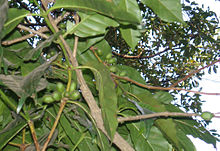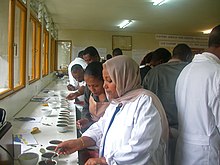
A natural resource is a “material or substance such as
minerals, forests, water, and fertile land that occurs in nature and can be
used for economic gain.” The county of Ethiopia has quite a few natural
resources. Most of their resources come from agriculture. They have a wide
range of soils, climates and elevations that allow for a variety of different
crops to be grown. They also have a large variety of minerals such as iron,
copper, petroleum, salt, potash, gold and platinum.
Ethiopia is the 110th largest export economy in the world. Ethiopia's top exports include refined petroleum which is used to make a variety of products such as gasoline, diesel fuel, kerosene and heating oils. Another export is coffee. Coffee is a $842 million industry for the county. The county also exports oily seeds which is used to make different types of cooking oils such as sun flower old, canola oil and sesame oil. The county also receives a few imports from other countries such as delivery trucks, telephones, iron structures and palm oil. In 2014 research shows that Ethiopians exported about 5.56 billion dollars in resources to other countries such as Kuwait, Somalia and Saudi. But imported 16.3 billion dollars in resources leaving the county at a negative trade balance of 10.8 billion dollars.

As I mentioned earlier Ethiopia is known for their coffee exports. Ethiopia is the 7th largest producer of coffee in the world. They produce over 28 thousand tons of coffee each year. The Ethiopians drink about half and then export the rest around the world. Coffee counts for about 10% of the annual government revenue for the county.



No comments:
Post a Comment